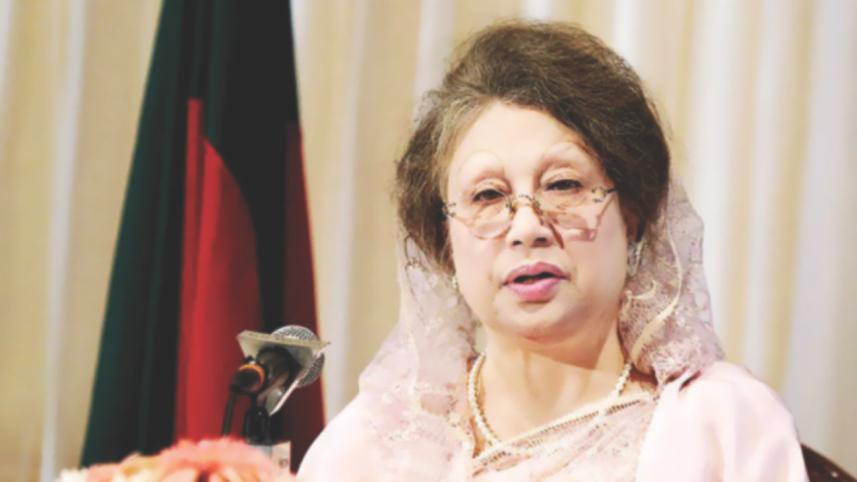BNP-Jamaat ties to continue

Despite pressure from both inside and outside the party to sever ties with Jamaat for its anti-liberation role and alleged patronisation of various militant outfits, BNP Chairperson Khaleda Zia is still unwilling to do so, according to party insiders.
Considering "the politics of votes", the BNP chief wants an electoral coalition with the Jamaat-e-Islami, a key component of the 20-party alliance, they said, adding that the Islamist party has vote banks in more than 100 constituencies where BNP's success in elections depends on the Islamist party.
Besides, the BNP thinks the government might try to get Jamaat on its side if it parts with Jamaat, and this would weaken the opposition further.
The issue of severing ties with Jamaat surfaced after the BNP-led 20-party alliance on Thursday at a meeting decided to hold an anti-militancy national convention in the capital, keeping Jamaat a part of it.
However, some pro-BNP professionals and intellectuals suggested that the BNP chief should cut ties with Jamaat before starting her move to unite the nation against militancy.
A day after the gruesome terror attack in the city's Gulshan Holey Artisan café, Khaleda at a press conference urged the government to create a national unity to fight militancy.
The government, however, rejected Khaleda's appeal, saying the BNP must sever its ties with the "fundamentalist and militant force" Jamaat.
Amid criticism for continuing its relations with Jamaat, a senior BNP leader yesterday said the party would think about severing its ties with Jamaat after the process of national unity to fight militancy starts.
At a press briefing at the BNP's Nayapaltan central office, BNP Standing Committee member Nazrul Islam Khan said they would look into the matter once discussions on the national unity starts with the government.
Former Dhaka University vice-chancellor Prof Emajuddin Ahmed yesterday said there would be no objection for the BNP to forge national unity keeping Jamaat on its side if the Islamist party offers apology to the nation for its role during the Liberation War.
"Otherwise, Jamaat will have to stay out of the process [national unity] for the greater interest of the country," the pro-BNP intellectual said at a discussion organised by the Doctors' Association of Bangladesh at the Dhaka Reporters Unity auditorium.
Pointing to criticism from different quarters for Jamaat's inclusion in the 20-party alliance, the former VC said many of the present Jamaat leaders and activists were born after 1971.
"There will be no objection if Jamaat's present leaders and activists offer apology for the role of their seniors during the country's liberation war," Emajuddin added.
At a view-exchange meeting with Khaleda on Thursday night, some pro-BNP professionals and intellectuals advised the BNP chief to ask Jamaat to apologise to the nation for opposing Bangladesh's independence.
They also said the BNP's move to unite the nation against militancy would not succeed if Jamaat does not offer apology.
Sources close to Khaleda yesterday told this correspondent that the BNP chief would not cut ties with Jamaat, a relation initiated by her late husband and BNP founder Ziaur Rahman.
BNP Senior Vice-chairman Tarique Rahman, who has been staying in the UK since late 2008, also wants to keep Jamaat in the alliance, sources close to Tarique said.
Describing Jamaat's importance in the 20-party alliance, a top leader of the alliance yesterday said Thursday's meeting was finalised only after ensuring Jamaat's representation in the meeting.




 For all latest news, follow The Daily Star's Google News channel.
For all latest news, follow The Daily Star's Google News channel.
Comments